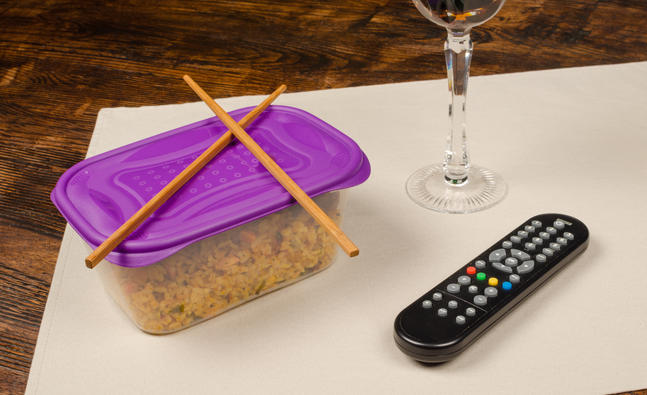Are Peanuts Good For Weight Loss?
Are you finding it hard to lose weight? What if there is one super-ingredient that can help you in your weight loss process? Well, we are talking about peanuts here.
But then, peanuts are anything but low-calorie foods. Used to make oil, butter and a variety of sinful (high calorie) delights, peanuts are crammed with nutrients. They contain vitamin E, Resveratrol, folate, niacin and are rich in mono-unsaturated fatty acids making them excellent for reducing LDL (bad) cholesterol. However, how can an ingredient so rich in fat and oil help you lose weight (1)?
Wondering how? Then you got to read this post!
Peanuts For Weight Loss:
We know that peanuts have many nutrients that help with various bodily functions. They are especially rich in dietary fiber, protein, and heart-healthy mono-unsaturated fats. So to say, they are one of the most nutritious foods out there! When you eat peanuts, the protein and fiber present in them stimulate the satiety center and balance your calorie intake. Protein also helps burn extra calories in the body.
Peanuts contain huge amounts of protein, which helps quicken your metabolism. As peanuts are loaded with good (mono-unsaturated) fat, you get most of the needed nutrients for your body without feeling deprived.
Peanuts have a low glycemic index, and hence provide energy for longer periods of time. This helps one balance blood sugar better. Peanuts are also rich in phytosterols, which help reduce cholesterol in the body.
Eating peanuts not only helps balance the amount of calories you eat, it also helps burn extra calories. Peanuts help balance blood sugar, keep you feeling full for longer, help reduce bad cholesterol and quicken the metabolism. Thus, for food that is rich in fat and oil, peanuts are effective weight loss agents. To answer the question we posed at the start of this post; yes, peanuts do help you lose weight (2).
Some Warnings:
Are peanuts good for weight loss? We know peanuts have many benefits. However, you need to remember that peanuts are usually high in calories and hogging on a whole bunch of them can jeopardize your diet. Therefore, refrain from overindulging in peanuts as they can hinder weight loss and possibly even fatten you up.
Note: 1-ounce of peanuts usually provides 161 calories.
Always use naturally occurring nuts, as salted ones are rich in sodium and can increase blood pressure. Roasted peanuts usually contain extra fat and are not healthy for the body. Flavored or sweetened peanuts are crammed with extra calories usually in the garb of additives and artificial flavors. If you have hypertensive tendencies, refrain from eating flavored and salted peanuts.
Although peanuts are one of the best sources for omega-3s, eat them in balanced amounts. Also, aim to use other sources of omega-3s like oily fish, avocados and olive oil. If you have allergies, refrain from eating peanuts.
Try and include other nuts like almonds, Brazil nuts, pistachios, walnuts and macadamias to ensure that you have all the goodness of nuts, and you don’t get bored eating peanuts every day (3).
Studies:
The Journal of Nutrition published a study in 2008, claiming that when taken in moderation, peanuts usually don’t increase weight. The 2010 review of the Asia Pacific Journal of Clinical Nutrition stated that diets that included nuts were found to more effective than diets that excluded them (4).
We hope this information on peanuts for weight loss proved useful to you. Include nuts in your diet to ensure you feel fuller longer and you don’t tire yourself out in the process. Please share your experiences with peanuts weight loss here by commenting in the box below! We love to hear from you and value your feedback!
-
6 Straightforward Things You Can Do at Mealtime to Make Losing Weight Easier
This article was written by Jenny Sugar and repurposed with permission
-
How Losing Weight Changes in Your 20s, 30s, and 40s
Late-night eats, pregnancy weight that won't budge, and a declini
-
Avoid a sedentary lifestyle to lose weight
-
WHAT TO EAT TO LOSE WEIGHT? 20 FOODS THAT HELP YOU LOSE WEIGHT
What to eat to lose weight? 20 Foods that help you lose weight
-
How My Breakup Motivated Me to Get Fit and Strong
Before: 320 After: 197
-
4 SIMPLE things that stop you from losing weight & how to CHANGE them now
- DON'T MISS
- 5 Ways to LOSE WEIGHT that are NOT diet-related
- Are grapes good for weight loss?
- Tons of Weight-Loss Ads Show Fake Before/After Photos: Report
- Some Bad News About Those Easy One-Bowl Meals
- Obesity: 8 reasons why we are getting fatter
- How This Woman Fought a Stubborn Weight-Loss Plateau—and Won
- How to prevent overeating
- Oatbran Breakfast That Keeps You Fuller For Longer
- Should I be a certain weight for pregnancy?
- 4 Exercises for a flat tummy




